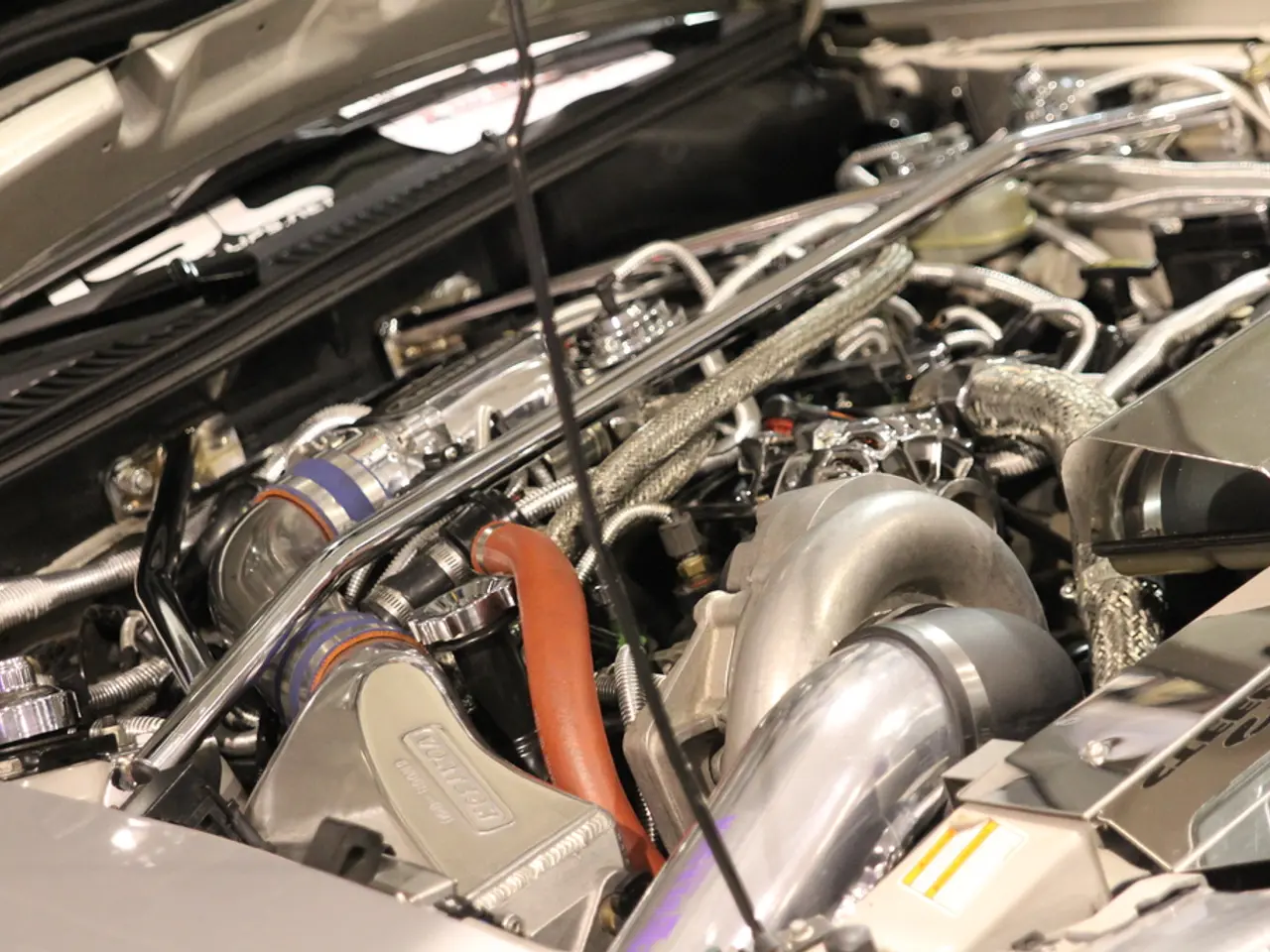Debate over the five-cylinder engine: genial invention or technological stalemate?
The five-cylinder engine, a staple in Audi's tradition since 1976, has faced numerous challenges in modern automotive manufacturing. One of the main issues is turbocharging, which has caused problems such as backfires and engine knock.
Despite these challenges, the five-cylinder engine has made a notable appearance in some high-performance vehicles. For instance, the Cupra Formentor VZ5, from the same group, briefly featured a five-cylinder engine with 390 PS (287 kW).
In 2024, Audi offered two models with a five-cylinder engine: the Audi RS 3 and RS Q3. The RS Q3 continued to be available until 2025, but it has since disappeared from the order books.
As we move towards 2025, Volkswagen will produce the last vehicle with a five-cylinder engine in Europe. The new Golf R model will be equipped with the 2.5-liter five-cylinder EA855 engine, currently used in the Audi RS3.
However, the future of the five-cylinder engine is uncertain. Volvo, Ford, and Fiat have gradually phased out this engine type in modern automotive manufacturing. Audi's CEO, Gernot Döllner, has announced that the five-cylinder engine will only survive until 2027, due to the introduction of the Euro-7 standard. After this year, the five-cylinder engine is likely to only be available in used cars.
There have been attempts to use the five-cylinder engine in compressor engines, but few have been successful due to the challenges in turbocharging. For example, Saab developed a five-cylinder prototype with a compressor and variable compression, but the project was stopped by General Motors. Audi also experimented with different exhaust arrangements and lengths, but could not overcome the fundamental physical constraints of the five-cylinder engine.
Despite these challenges, the five-cylinder engine has left a lasting impact on the automotive industry. Its unique sound and performance characteristics have made it a favourite among enthusiasts, and it will undoubtedly continue to be cherished in the years to come.
Read also:
- Industrial robots in China are being installed at a faster rate than in both the United States and the European Union, as the global market for these robots faces a downturn.
- Undeads Games Reaches $30 Million TVL and Gears Up for MMORPG Debut
- Hyundai N affirms transition to hybrid performance-centric models, initiating with Tucson N
- Galvanize Unveils $1.3 Billion Plan to Fund the Energy Sector's Evolution Pathway








